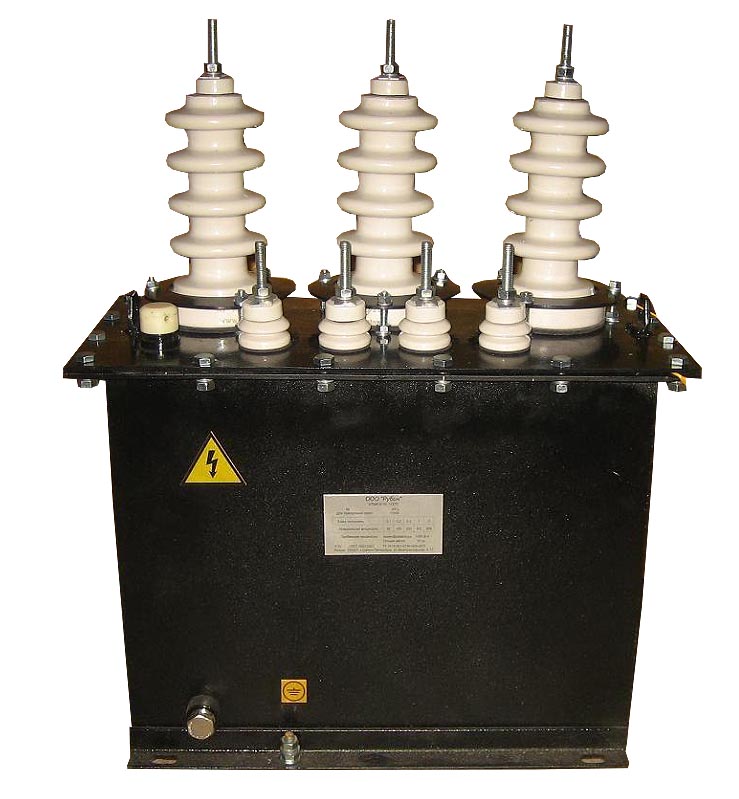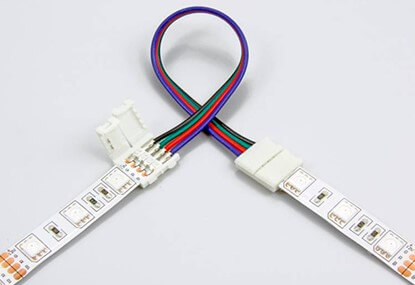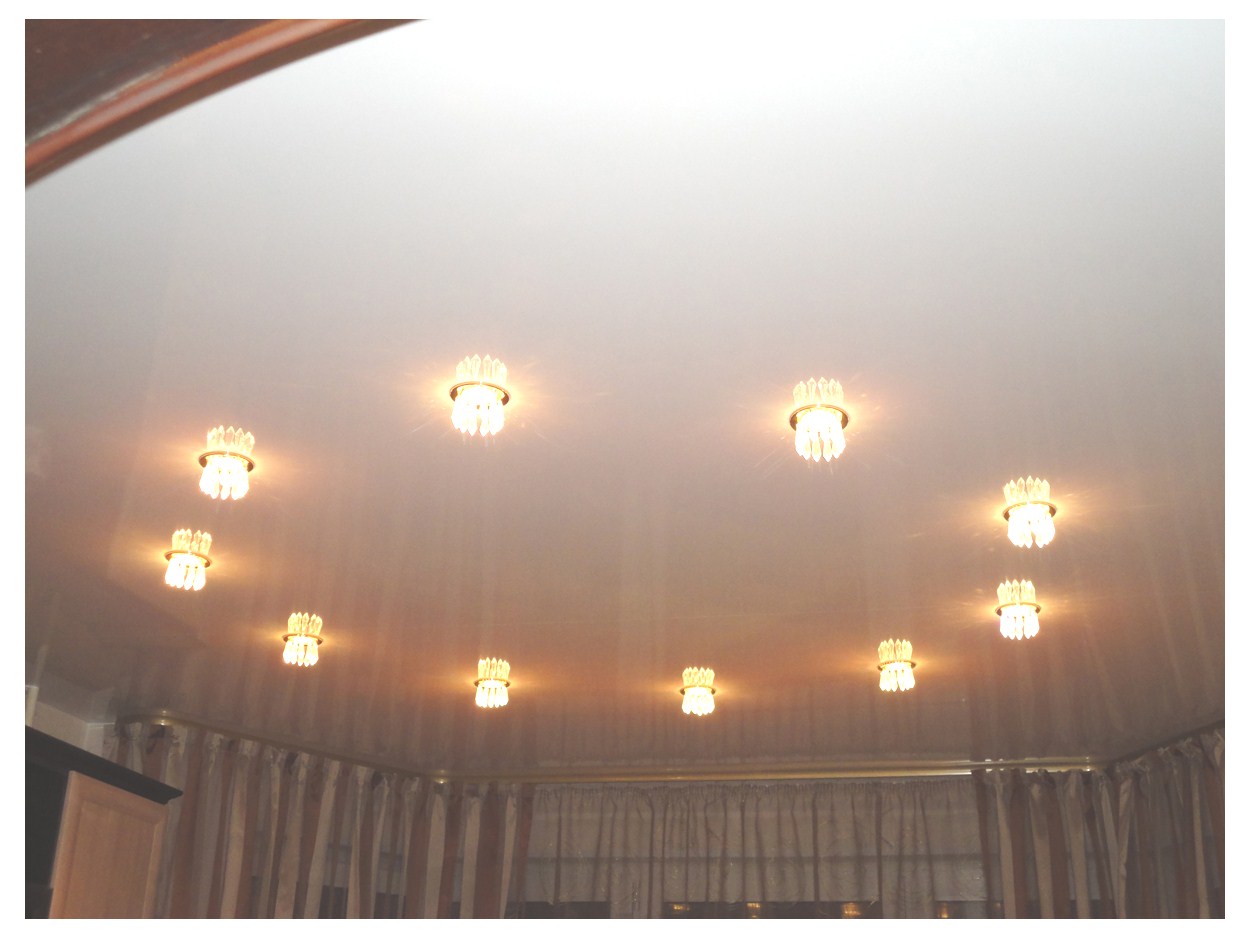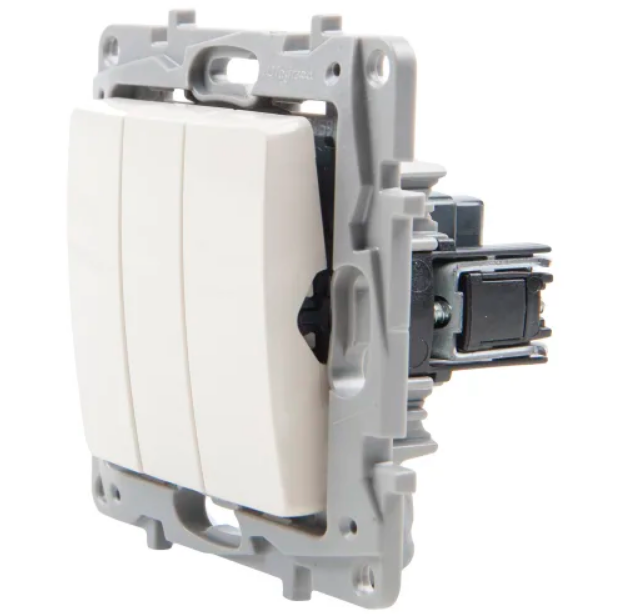Electricity makes human life more comfortable and convenient. At the same time, it is a source of increased danger, which is the cause of more than half of the fires occurring in the country. As a result, people die, expensive property is destroyed, residential buildings and utility structures become unusable. When purchasing real estate, its owners cannot know about the state of the wiring installed in it and the purchased household appliances. Knowing what to do if the wiring caught fire, you can quickly and without serious consequences avoid an emergency.
Causes of fires
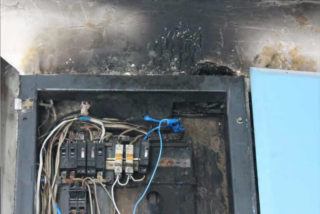
Cables can catch fire for the following reasons:
- Overload on the line. When several powerful consumers are connected, the conductive sections begin to get very hot. When the critical temperature is exceeded, the wiring and finishing materials ignite.
- Short circuit. When the cores come into contact, an arc arises, the temperature of which is so high that the metal melts and the supporting structures are destroyed. This is often due to mechanical damage or deterioration of the insulation.
- Oxidation of contacts. During operation, the metal in them oxidizes, resistance increases, a fire occurs due to electrical wiring, which has not been checked and maintained for a long time.
- Laying of lines on flammable materials. Typical for open wiring, when cables are laid in plastic boxes that do not have a fire protection class. Products are flammable, both from strong heating and from a flash of short circuit.
- Damaged power supply cable from household appliances. Defects occur in places of bending, splicing, due to exposure to fire or an accidental cut.
If the electrical wiring caught fire, you need to know how to act in an extreme situation in order to get out of it with minimal moral and material losses.
Procedure for detecting the first signs of fire
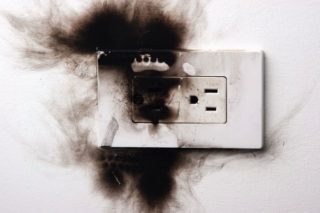
Signs that the wiring is on fire:
- the light starts blinking, goes out over time;
- the room may smell of burnt plastic;
- the occurrence of crackling coming from walls or junction boxes;
- the appearance of white or black smoke;
- darkening of walls in places of cable laying.
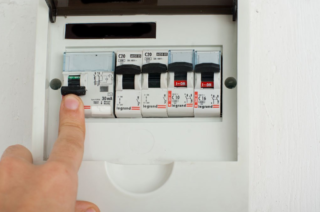
In the event of a fire in the electrical wiring, the following measures should be taken:
- To remain calm, to convince yourself and others that the situation is under control and its elimination is an easy and safe business.
- If possible, de-energize the apartment - unscrew the plugs, turn off the machine.
- Arrange for women and children to immediately go out into the stairwell, start notifying neighbors in the house and call the fire brigade.
- Close windows and doors to stop oxygen from reaching the flame.
- Wet a towel and wrap it over your face to protect your respiratory system from toxic fumes.
- Bend down or crawl to explore the premises in search of a fire source.
- Disconnect all household appliances from the mains. After that, throw a blanket, blanket or other thick cloth over the burning device. If there are flowers in flowerpots nearby, you can use the soil in them.
- Start extinguishing the fire using all available methods.
If the situation is not critical, you need to turn off the lights and conduct an inspection of sockets, switches and junction boxes. Fire due to wiring most often occurs in these places in the presence of poor-quality twists and contacts. Defects include melted plastic, soot and blackened walls. The cable can also burn out in the strobe. You can determine this using a tester. In this case, you will have to change part of the wiring.
Methods for extinguishing a burning wiring
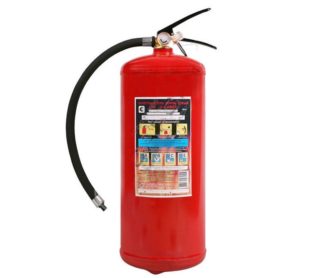
If a wiring burns, it should be extinguished immediately to prevent the spread of fire. If this is not done immediately, the fire can cover all rooms and spread to neighboring apartments.
To extinguish a burning cable, you can use the following types of fire extinguishers:
- Water and foam. They form a large volume of water foam, which blocks the access of oxygen to the smoldering or burning material. The foam is conductive, so fire extinguishers can only be used if the electricity is turned off.
- Powder. The products are distinguished by their compactness and ease of use on lines under voltage up to 380 V. They cover the fire site with an air-impermeable layer, as a result of which the combustion stops. Cannot be used in strong traction conditions and on vertical surfaces.
- Carbon dioxide. They are the most effective means of extinguishing a fire. The supplied jet has high pressure and low temperature. As a result of exposure, the flame is eliminated and the smoldering objects are simultaneously cooled. Designed for extinguishing installations under voltage up to 10,000 V.
Instructions for the use of fire extinguishers are printed on their bodies. Before purchasing, you should read them and check the expiration date. Disposal of fire extinguishers should be carried out in specialized organizations.
What can not be extinguished live wiring
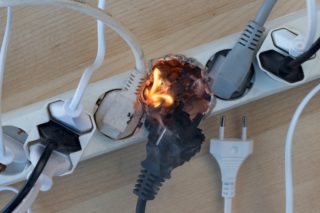
If the wiring in the apartment caught fire, it is necessary to make the right decision regarding the choice of means to extinguish the flame. Reckless actions can only exacerbate an already difficult situation.
The use of the following means for extinguishing live wiring is strictly contraindicated:
- Water and any solutions based on it. Such liquids conduct electricity well. You can get an electric shock immediately when pouring water. Further, the situation only gets more complicated, as the liquid spreads over the floors, turning the apartment into a high-risk area.
- Factory-made and home-made alcoholic beverages. They catch fire from heating, a pungent smell can provoke poisoning, and carbon dioxide can cause loss of consciousness.
- Food products (vinegar, sauces, broths). First, they contain water. Secondly, when they are heated, preservatives are released into the air, steam and smoke are created, which impairs visibility.
- Synthetic fabrics. From contact with fire, they melt, ignite and emit large amounts of toxic smoke. Such materials can ignite surrounding objects with a low flash point.
The best means of fighting a fire (in the absence of fire extinguishers) are leather, fur, and thick tarpaulins. These materials are non-flammable and airtight, which is the main condition for fighting flames. If the wiring has burned out, but everything else has survived, damaged clothing is a trifle.
What to do if you can't put out the fire
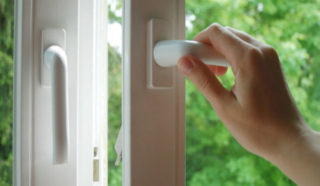
Apartments filled with wood and plastic products can burn out in a matter of minutes. But the main danger to human life is not fire, but smoke. This must be taken into account when deciding on the course of action in a critical situation.
If the fire cannot be extinguished, the following measures are recommended:
- Close all windows, interior doors tightly and leave the house, taking your phone, documents and valuables with you. Indoors, the fire moves slowly. There is a chance that it will not flare up until the arrival of the firefighters.
- If the front door is blocked by fire or smoke, close the bathroom. After that, wet the towels and plug the cracks with them. Then water the door leaf to prevent it from igniting and burning through.
- When there is a blockage in the back room, you need to use the window for breathing, calling for help or going to the fire escape, which will be a great success.
If all of the above methods turned out to be unavailable, you need to lie on the floor by the window, breathe through natural fabric and wait for salvation. You should not try to break through fire and smoke to the exit. From heat exposure and poisonous gases, you can instantly lose consciousness and burn alive.
Precautions
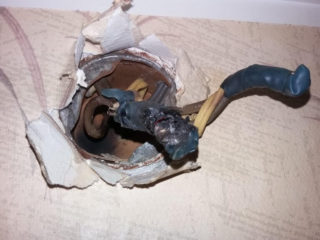
Preventive measures to prevent wiring fires require time and money, but all this is incomparable with the consequences of a fire.
It is recommended to observe the following rules:
- Do not turn on several powerful consumers at the same time, as this creates a critical load on the line.
- Do not connect copper and aluminum wires directly. This is a dangerous option that will sooner or later become the cause of an emergency.
- Install a residual current device in the apartment. With its help, housing will be automatically de-energized even before the moment of fire.
- Inspect outlets, junction boxes and switches annually. Contacts should be cleaned and strengthened, insulation should be renewed.
- Before leaving the apartment, turn off household appliances that are used periodically. Leaving on vacation completely de-energize the room.
To be prepared for the worst case scenario, you should purchase a carbon dioxide or dry powder fire extinguisher and teach the whole family to use it.


